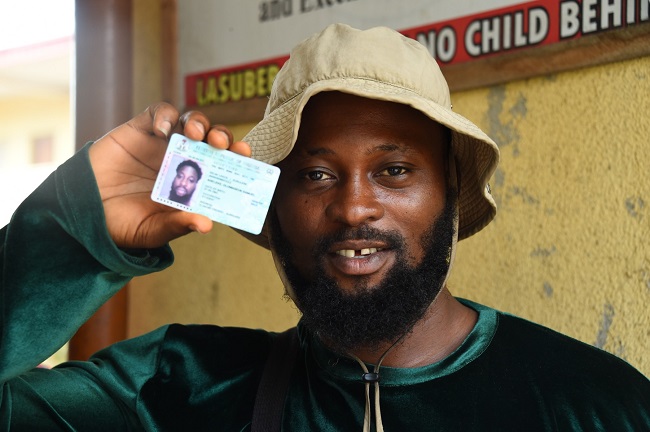As Nigerians head to the polls on Saturday, 87.2 million voters have been cleared to participate in the crucial exercise.
Data released by the Independent National Electoral Commission (INEC) on Thursday show that 93.5 million Nigerians were registered to participate in the presidential and national assembly election as well as the governorship and state assembly polls slated for March 11.
Of the figure, 87.2 million voters collected their Permanent Voters Cards (PVCs) as of February 5 deadline for the collection of the cards.
The PVC is a criterion that enables voters to exercise their franchise during elections. Already, the electoral body has said that it wouldn’t allow any Nigerian without the card to vote on February 25 and March 11 respectively.
According to INEC, the number of uncollected PVCs stands at 6,259,229 – representing 6.7 per cent of PVCs that are still uncollected. This means unclaimed owners of the cards will not vote during the elections.
Briefing reporters in Abuja on Thursday, INEC Chairman, Mahmood Yakubu revealed that a total of 1,642,385 polling units and collation centre agents of political parties will participate in the elections.
Available data showed that Lagos has the highest figure of 6,214,970 people with collected PVCs, followed by Kano with 5,594,193. Other states are Kaduna, 4,164,473; Katsina, 3,459,945; and, Rivers, 3,285,785.
On the other hand, Ekiti has the lowest number of registered voters and also has the least number of PVCs collected – 958,052.
Based on the geopolitical zones, the North-West has a total of 21,445,000 collected PVCs, followed by the South-West region with 15,536,213. Other regions include North-Central – 14,603,621; South-South – 13,284,920; North-East – 11,937,769; and, South-East – 10,401,484.
While lamenting that vote buying is a threat to democracy in the country, the INEC boss pledged that the Commission will work closely with security agencies to tackle the issue.
Describing the act as illegal and immoral, Yakubu is confident that the inter-agency cooperation will reduce the issue of voter inducement during elections.
“Vote-buying remains a major threat to our democracy. We have worked closely with enforcement agencies to ensure that this is eliminated from our electoral process. We are convinced that our joint operations before and on Election Day will vastly reduce the prospect of voter inducement, which is not only illegal but immoral.
“The ban on the use of mobile phones and photographic devices at the voting cubicles is still in place. Some voters have used these devices in previous elections to snap their marked ballot papers for vote transactions.
“However, citizens are permitted to come to the polling units with these devices, as long as they do not take them to the voting cubicles. Our arrangement of placing the ballot box near the voting cubicle and away from party agents remains,” he stated.
Among the 18 presidential candidates, analysts have predicted that the polls will be a horse race among four front runners.
They are Ahmed Bola Tinubu of the ruling All Progressives Congress (APC); Atiku Abubakar of the main Peoples Democratic Party (PDP); Peter Obi of the Labour Party and Rabiu Musa Kwankwaso of the New Nigeria Peoples Party (NNPP).
The February 25 election will be closely watched after coups in Mali and Burkina Faso knocked West Africa’s democracy and Islamist militancy spread north of Nigeria’s Gulf of Guinea neighbours.
Whoever emerges as successor to outgoing President Muhammadu Buhari will inherit a bewildering set of security and financial problems.

